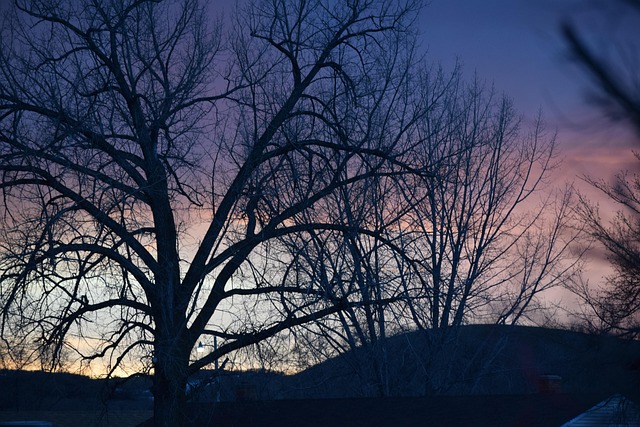Robocalls from out-of-state or international numbers impersonating lawyers are a growing concern in Grand Forks and North Dakota. These automated calls often offer free legal consultations but can be fraudulent. Residents can protect themselves by registering on the state's Do Not Call list, blocking unknown numbers, and seeking legal action against violators with help from a Do Not Call Lawyer North Dakota or specialized attorney. This comprehensive approach ensures robust protection against unwanted robocalls.
In today’s digital era, Grand Forks residents often find themselves on the receiving end of incessant robocalls, a nuisance that has become an all-too-common irritant. Understanding and navigating these unwanted calls is crucial for maintaining peace of mind. This comprehensive guide aims to empower Grand Forks residents by clarifying the legal landscape surrounding do-not-call policies in North Dakota, offering practical tips to stop robocalls, outlining resident rights, and providing insights into finding a qualified do not call lawyer or do not call attorney within the state.
What Are Robocalls and Why Are They a Problem?
Robocalls, or automated phone calls, have become a widespread and often annoying nuisance for people across North Dakota, including Grand Forks residents. While some robocalls promote legitimate services or offer valuable information, many fall into the category of unwanted and fraudulent activities. These automated messages can be from law firms, lawyers, or attorneys trying to reach potential clients, often with promises of free consultations or legal aid. However, they may also signal scam attempts, where callers pose as legal professionals to trick individuals into sharing personal and sensitive information.
The problem arises when residents start receiving numerous calls from unknown sources, prompting concerns about privacy and security. Many of these robocalls are generated by out-of-state or even international numbers, making it challenging for local authorities to trace their origin. Moreover, with the rise of technology, scammers can now easily spoof caller IDs, displaying false information to deceive recipients into answering. This has led to a significant increase in complaints about do-not-call laws being violated, as residents in Grand Forks and across North Dakota seek protection from these intrusive calls, especially those promising legal assistance or attempting to sell services.
The Legal Landscape: Do Not Call Laws in North Dakota
In North Dakota, the legal framework surrounding unwanted telephone calls, commonly known as robocalls, is governed by the state’s Do Not Call laws. These regulations are designed to protect residents from intrusive and unsolicited marketing calls. The Do Not Call Act of North Dakota grants consumers the right to register their phone numbers on a state-managed Do Not Call list, effectively blocking commercial calls from certain telemarketers.
Residents of Grand Forks, like anywhere else in the state, can restrict these automated calls by registering their landline or mobile number with the appropriate authority. Furthermore, North Dakota law allows individuals to take legal action against companies or attorneys who violate these Do Not Call regulations. A do not call lawyer in North Dakota can assist residents in navigating their rights and seeking compensation for any harassment caused by persistent robocalls.
How to Stop Receiving Robocalls
If you’re tired of receiving unwanted robocalls, there are several steps you can take to reduce their frequency. One effective method is to register your number on the Do Not Call registry in North Dakota. This list prevents telemarketers from calling residential phone numbers for promotional purposes. You can sign up online or by mail with the North Dakota Attorney General’s Office.
Additionally, consider blocking calls from unknown or suspicious numbers on your device’s settings. Many modern phones offer this feature, allowing you to create a personalized blocklist. You can also restrict calls from specific areas or numbers associated with robocalls. Remember, while these measures help, they might not eliminate all robocalls, but they can significantly reduce their number and give you more control over your communication.
Your Rights as a Grand Forks Resident
As a resident of Grand Forks, North Dakota, you have specific rights when it comes to dealing with robocalls. The Do Not Call laws in place are designed to protect your privacy and give you control over unwanted phone calls. According to these regulations, you have the right to register your number on the state’s Do Not Call list, which will prevent automated or prerecorded telemarketing calls from being made to your residence.
Additionally, if you feel that any call is a violation of these laws, especially from a law firm or individual claiming to represent such, you have the option to file a complaint with the North Dakota Attorney General’s Office. This office has the authority to take action against companies and individuals who consistently ignore the Do Not Call regulations. Remember, if you wish to stop receiving calls from specific sources, blocking them is just one step—official complaints can lead to further legal actions against persistent violators of Do Not Call laws in North Dakota.
Finding the Right Lawyer for Robocall Harassment Cases
If you’re experiencing relentless robocalls in Grand Forks, North Dakota, knowing where to turn for legal help is crucial. The first step is to find a lawyer who specializes in Do Not Call laws and has experience handling similar cases. You’ll want someone who understands the frustration these calls can cause and is dedicated to protecting your rights under North Dakota’s consumer protection regulations.
When searching for a lawyer, look for a North Dakota-based practice with expertise in telecommunications law. They should be able to offer tailored advice and aggressive representation if needed. Many law firms in North Dakota cater to consumers facing robocall harassment, so you can find a suitable lawyer for Do Not Call North Dakota through online searches or referrals from trusted sources.






